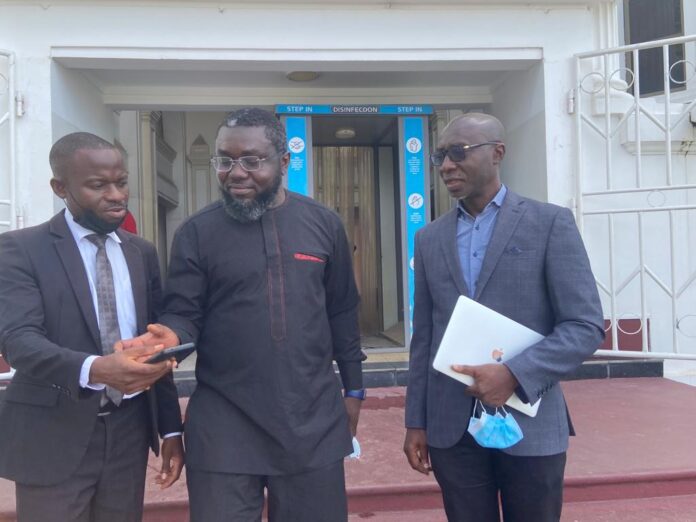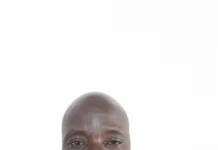
A seven member panel of the Supreme Court has by a unanimous decision declared as unconstitutional the law that allowed President Nana Addo Dankwa Akufo-Addo to impose restrictions during the Covid-19 pandemic.
The panel chaired by acting Chief Justice, Justice Jones Dotse also said the parties have placed a rival meaning on Article 21 of the Constitution which requires its interpretation by the apex Court.
The Court said Article 31 is the gateway of dealing with public emergency and therefore, the restriction imposed by the government during the pandemic was “Unconstitutional and therefore null and void.
It was the case of the Plaintiffs that, the 1992 Constitution provides a legal regime for instituting and managing public emergencies.
This regime is outlined under Articles 31 and 32 and that the Article 31(9) specifies what may constitute a public emergency (or what may warrant the declaration of “a state of emergency”).
Therefore, for the government to impose Covid -19 restrictions based on Articles 21 was unconstitutional.
According to EIB Network’s Legal Affairs Correspondent, Murtala Inusah, the full reasoning of the judgement would be ready on or before June 7.
The Supreme Court has in a unanimous decision ruled declared as unconstitutional the law that allowed government to impose restrictions during the Covid-19 pandemic.
Plaintiffs case
It was the case of the Plaintiffs, through their lawyer Dr Justice Srem Sai, that towards the end of the year 2019, the city of Wuhan in the Republic of China was hit by what would become a global health emergency – the Coronavirus (the “COVID-19”) pandemic.
They argued that, on March 12, 2020, the Minister of Health announced that Ghana had recorded its first COVID-19 case (See Exhibit BD1).
“Soon thereafter, His Excellency, the President, presented an address to the nation in which he outlined a series ofanti-coronavirus measures. These include laws which were aimed, ostensibly, at five key objectives: (a) stopping the importation of the virus; (b) containing its spread; (c) providing adequate care for the sick; (d) limiting the virus’ impact on social and economic life; and (e) inspiring the expansion of Ghana’s domestic capability. The measures were to take immediate effect.
They argued that, “Following this, and by the Declaration of Public Health Emergency
(Coronavirus Disease (COVID-19) Pandemic Instrument, 2020 (E.I. 61), a public health emergency was declared in accordance with Section 169 of the Public Health Act, 2012 (Act 851). Subsequently, His Excellency, the President, instructed the Defendant to submit before Parliament emergency legislation in accordance with Article 21 (4)(c), (d) and (e) of the 1992 Constitution.
“The draft legislation – the Imposition of Restriction Bill – was laid before Parliament within five (5) days of the President’s direction. The Bill was passed by a voice vote and was, within 24 hours, assented to by His Excellency, the President. TheImposition of Restrictions Act, 2020 (Act 1012) was thereafter published in the Gazette and, thereby, entered into force on March 21, 2020.
“Act 1012 empowers the President to unilaterally (without the involvement of the other branches of government) make orders to suspend human rights wherever, whenever, howsoever and in respect of whomever (even if ad hominem) as he, the President, deems fit.
“In line with this power, His Excellency, the President, has made, continues to make and, as a matter of fact, has disclosed no intention of ceasing to make Executive Instruments to unilaterally (without recourse to Parliament or Parliamentary oversight) suspend fundamental human rights across the country as and when he deems it fit to do so.
“At the last count, the President has made as many as 26 different Executive Instruments under Act 1012 to suspend human rights.
Essentially, the President has used Act 1012 as a basis to impose restrictions on almost all the fundamental human rights and freedoms – civil, political, economic, social, and cultural – including those which are outside Article 21 of the 1992 Constitution.
“These include the right to education (due to closure of schools); freedom of religion (suspension of services in churches and mosques); cultural rights (restriction of the number of persons at funerals); freedom of association (suspension of conferences, workshops, among others); political rights and freedom of expression (suspension of political rallies, among others), leisure (suspension of sporting events, among others), and movement (travel advisory, closure of borders, among others).
“Based on these facts, the Plaintiffs contend that the terms and tenor of Act 1012 are inconsistent with the 1992 Constitution, and is, therefore, void. It is equally important to state that Act 1012 is also inconsistent with Ghana’s duly ratified and long-standing international law obligations,” the Plaintiffs through the lawyer Dr Justice Srem-Sai.
Reliefs sought
The reliefs of the Plaintiffs in the matter are Prof Kwadwo Appiagyei-Atua, Dr Sena Dei-Tutu, Felicity Nelson, Benjamin Darko, Samson Lardy Anyenini, Golda Addo, Democracy Hub LBG and Democratic Accountability Lab LBG were all granted.
They sought is as follows;
.1 Adeclaration that upon a true and proper interpretation of Articles 21, 31, 32, 58, 93(2) and 125(3) of the 1992 Constitution, Article 21 (4)(c) or (e) of the 1992 Constitution may not be applied to suspend a fundamental human right or freedom during a public emergency.
- A declaration that the Imposition of Restrictions Act, 2020 (Act 1012), contravenes or is inconsistent with Articles 21, 31, 32, 58, 93(2) and 125(3) of the 1992 Constitution to the extent that Act 1012:
a. Empowers the President to unilaterally suspend fundamental human rights and freedoms in the whole or a part of Ghana;
b. Excludes the special role of the Chief Justice and the Superior Court of Judicature in managing or regulating the suspension of fundamental human rights and freedoms in the whole or a part of Ghana; and
c. Excludes the role of Parliament in managing or regulating the suspension of fundamental human rights and freedoms in the whole or a part of Ghana.
- An order to strike down the Imposition of Restrictions Act, 2020 (Act 1012) as void; and
- Any other order (s) or reliefs) that the honourable Court may deem fit.
Source: Ghana/Starrfm.com.gh/103.5FM/Murtala Inusah




